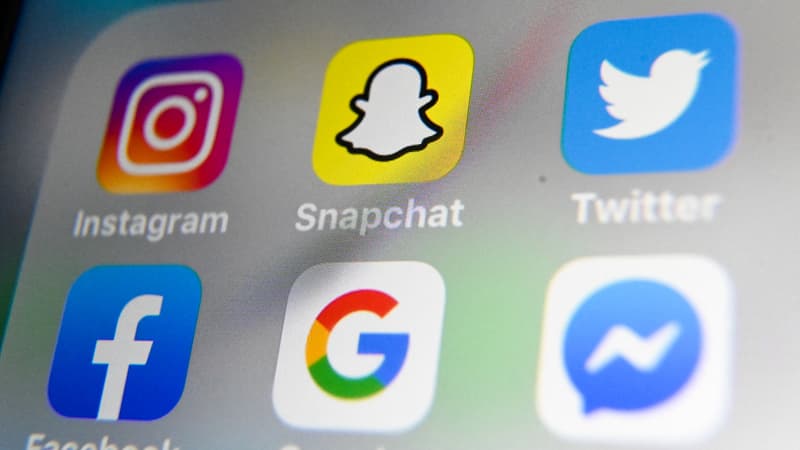The promise is ambitious, but it is there: to thoroughly review the operation of digital services, from social networks to online merchants. The Digital Services Act (DSA), or “digital services regulation”, comes into force on August 25, after several years of discussions between Europe and the various platforms.
The objective of the European Union with this new text is to guarantee better cooperation with companies, but above all to better protect Internet users against various Internet failures (false information, illegal content, scams, etc.).
Affected companies have until January 1, 2024 to comply with this new regulation. After this date, the sanctions will be effective. They can reach a fine equivalent to 6% of the billing, or even a total ban on operating in the territory, in case of recidivism.
Below we present five key points of this new legislation, and especially what should change in the day-to-day life of Internet users.
Mandatory chronological display
With the DSA, the algorithms of social networks are specially targeted. Platforms that offer, by default, content highlighted by their algorithms based on user activities, will have to change their interfaces. From now on, they will have to specify whether the news is chronological or ordered by their algorithm, and offer to choose between the two.
Platforms also have an obligation to explain to users how they can switch from one thread to another, and this is not always easy.
A few days before the deadline to comply, Instagram has announced that users will be able to choose to show Stories and Reels chronologically instead of through recommendation algorithms, as is the case today. This feature is also valid on Facebook.
For its part, TikTok announced a similar change to its “For You” feed and will offer the option to turn off personalized content recommendations. Instead, Internet users will be able to freely choose to view popular videos in their region or in other areas of the world.
The LinkedIn platform has added an option on the home page that allows the user to choose whether or not to display custom posts.
advertising transparency
The DSA also signed a ban on advertising directed at children under 18 years of age. Above all, the platforms must explain to the user the reasons why this or that ad is shown, receiving more information about it.
The platforms will also not be able to present ads that target ethnic groups, political opinions or sexual orientation.
On August 1, Facebook announced that it would now seek consent from its users based in the European Union before allowing their data to be shared for advertising purposes.
Currently, users who sign in to Facebook and Instagram have this data sharing permission enabled by default, which allows Meta to generate highly personalized and highly lucrative ads.
Each platform must also create an ad library accessible to all, in order to provide transparency on all ads aired. TikTok launched its own in 2021 and is improving it as part of the DSA. Lists information about all the ads broadcast by a brand on TikTok, indicating in particular the start and end dates of the broadcast, the number of views and the segmentation (age, gender, geographical area, etc.), such as with the advertisements. for lip injections.
There is also a similar platform for Facebook and Google. Snapchat has also created its ad library that indicates the identity of the person who paid for the ad, an image of the creation, the duration of the campaign, or even information about the targeting applied.
Easier to report content
European regulations also want to fight against illegal content. In this way, it is agreed that users will be able to report content more easily through a “priority channel” accessible directly from the platform.
Once reported, they must immediately remove or block access to illegal content. Through this channel, the “trusted banderistas”, designated at the national level, such as the Pharos platform in France, will be in charge of informing the platforms about the content that must be prohibited as a priority.
Specific information in case of ban
In case of banning an account or deleting content, the social network must also systematically provide details of its decision to the user in question. Snapchat, for example, will now notify users why their account was banned. They can also appeal the decision.
More traceability of online sellers
Platforms that host them (for example, third-party sellers on Amazon) will need to track sellers more effectively, collecting accurate information about their trustworthiness before allowing them to operate on their site. The seller may be required to provide a phone number and email address to register to prevent potential scams.
The 19 rigs affected by the DSA as of August 25:
Alibaba AliExpress, Amazon Store, Apple AppStore, Bing, Booking.com, Facebook, Google Play, Google Maps, Google Search, Google Shopping, Instagram, LinkedIn, Pinterest, Snapchat, TikTok, Twitter, Wikipedia, YouTube and Zalando.
The DSA will eventually apply to all internet service providersHE cloud services as well as all online platforms.
At the moment, only the very large platforms used by more than 45 million Europeans per monththey are worried.
Source: BFM TV


